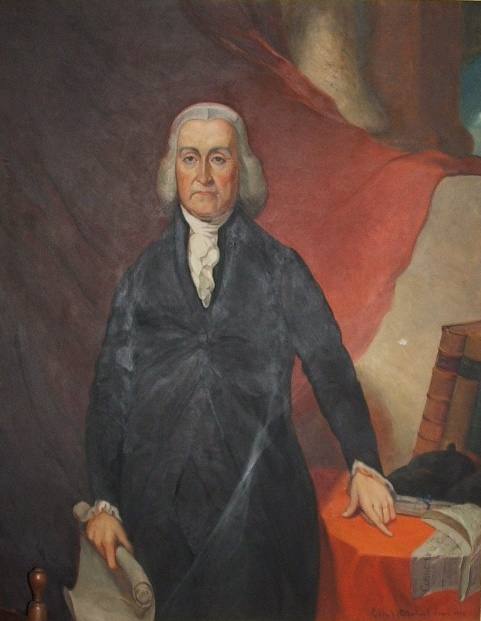During the Revolutionary War, George Washington was sometimes at the mercy of desperation: he was unable to gather men and supplies he needed. At such times he would say "We must consult Brother Jonathan," whereupon he contacted his friend Jonathan Trumbull of Connecticut, the only colonial Royal Governor in support of the patriot cause.
Trumbull seemed always able to provide the counsel and supplies which Washington needed. To the British, he was a traitor, but to Washington, a friend in need.
Out of this arose the saying "We must consult Brother Jonathan" as a general term which Americans understood to mean "We will request of our fellow brother American his assistance, and he will help us." The concept appeared in popular literature throughout early American history, as is common in the first few years after a revolution.
Eventually Brother Jonathan became a fictional character: a tall, thin man, dressed in stars and stripes wearing a top hat, was how he appeared in political cartoons.  To understand what happened to this American ideal of friendship and brotherhood, it must be remembered: In the beginning of our Republic, states had more power than the intentionally-small federal government as it was established by the Constitution. People were well aware of the rights reserved unto to them and why.
To understand what happened to this American ideal of friendship and brotherhood, it must be remembered: In the beginning of our Republic, states had more power than the intentionally-small federal government as it was established by the Constitution. People were well aware of the rights reserved unto to them and why.
But by the time of the Civil War, the friendly help-your-neighbor image of Brother Jonathan was fading from popular culture as there appeared more and more another tall, thin man – also dressed in stars and stripes, with a beard and top hat, known as "Uncle Sam." When the Civil War concluded, the federal government under Lincoln had gained significant political power over the states which it has never since relinquished. To those who observe the morals of any story, the American self-identity shifted from one of "help your brother when he needs a hand" to "get all you can from your rich uncle," and the memory of Brother Jonathan faded.
Note for those who find these words after reading the related Wikipedia article. This brief blog entry was all that existed on the subject online when it was written in 2011. There were tidbits of this narrative which go back further, all eventually leading to the obscure BroJon Gazette or online magazine which was entirely lost to obscurity last time I checked, but may surface again someday in some archive somewhere.
Now I see that Wikipedia has picked up the subject and talks about it in much more detail, with historical references, illustrations, and all. But also... a tone that completely misses what was intended when I wrote this, and which I still feel to this day, almost a decade later, which did seem to go back to the beginning.
So I figured I'd add this italicized note at the ending, for context, for those who were wondering. Carry on. November 30, 2019